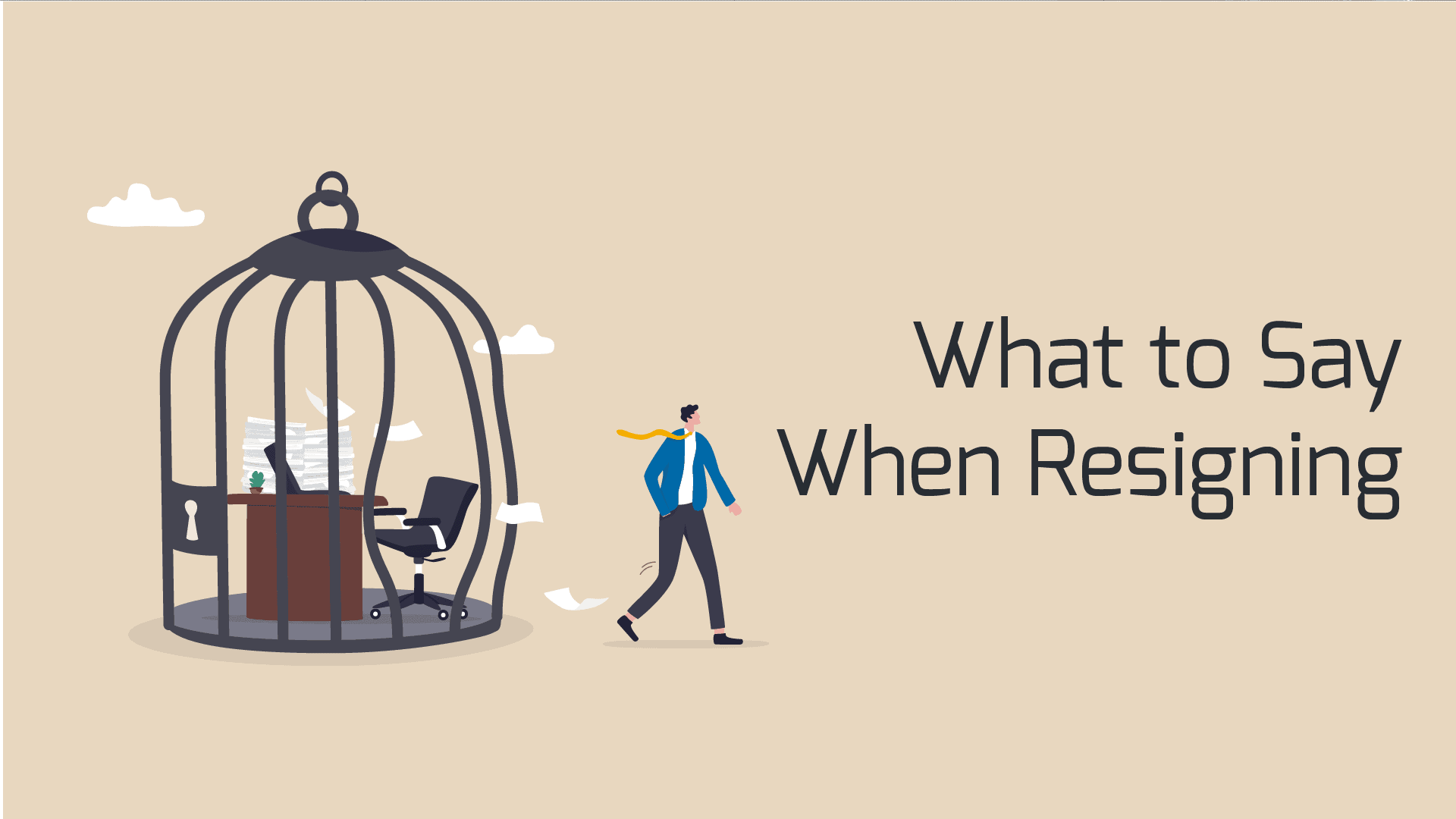Resigning from a job is never as simple as saying, “I quit!”; it has to be planned out correctly. It’s vital that you leave a positive final impression and depart on good terms. When done right, your bosses, co-workers, and business partners will turn out to be great references moving forward. If not, you risk damaging your reputation, personal and professional relationships, and future opportunities.
If you are planning to quit your job, follow these five steps closely to do it the right way.
Topics Covered
- Keep it Positive (or Neutral)
- Give an Explanation
- Offer to Help Transition
- Submit a Letter of Resignation
- A Sincere ‘Thank You’
1. Keep it Positive (or Neutral)
It can be difficult to stay calm and optimistic when intimating your decision to resign. You may be feeling mistreated, overlooked, or underappreciated. But choose your words carefully—what is said can never be unsaid. You never know what could come back to haunt you.
All industries, and especially IT, tend to be close-knit communities. People at your company may have contacts with others in the sector. Maybe it’s an ex-colleague or ex-boss or just an acquaintance—which means they could belong to the same groups and organizations and are even still in touch. You never know who you will work with again in the future. Be sure to leave a positive, lasting impression on everyone you come across.
2. Give an Explanation
Your justification for leaving is your own, so how much of it you choose to share is up to you. If you didn’t get along with a supervisor and have found a new role with more growth potential, choose to mention just the latter.
If you are leaving for personal reasons, it’s necessary that you say so, without delving into the details. For example, you can mention that you are making this shift to care for a family member, but there’s no need to explain further. At the end of the day, you want to leave on a positive note without your former employer feeling confused or betrayed.
You may want to know the Best Job Boards for Tech Jobs Check out here
3. Offer to Help Transition
The moment you resign, your employer will be worried. They’ll wonder who will feel your shoes, how long it will take to train that person, and to what extent the current project will be affected. While you can’t solve all of these problems, you can help to mitigate some.
In most situations, you will require to serve a notice period of at least a couple of weeks.
Remember to give it your all during this final stage—this will truly reflect how committed you are, despite not having to stick around. Leaving a last impression is just as important as the first. Offer some tips to streamline the transition process; make sure to take feedback too. Finish your current projects, document everything accurately, and set up your replacement for success. If possible, mentor the new employee and share your best practices with them. Be clear about your unfinished tasks too—don’t leave any loose ends. The happier you leave your current employer, the better a reference they will be in the future.
4. Submit a Letter of Resignation
Prepare a resignation letter so you can give it to your boss when you meet with them. Just stick to the basics—state that it is your official notice of resignation, mention the last day you are available to work through and include your up-to-date contact information. The remaining details, such as why you are leaving and how you believe you can help until then, should be a verbal discussion.
If you are working remotely, you may not be able to give your boss the notice in person. In this instance, sending an email is acceptable. Be sure to include your resignation letter as an attachment rather than in the body of the email itself.
5. Give a Sincere ‘Thank You’
Regardless of your reason for resigning, there might be plenty of things you are thankful for. Maybe your current role led to the new one or you got the chance to upskill yourself and master new technologies. It could even be an accomplishment or project you are really proud of.
Think of something specific that you are grateful for and convey it to your employer. Mention the times they have stuck by you through tough situations or the unique projects you were able to be a part of. This may be your last chance to leave a final impression, so use it wisely.
Conclusion
Whether you are an amateur or a senior, resigning from a job is no walk in the park. It feels awkward and uncomfortable, especially because you don’t want to hurt your boss’s feelings, let alone tarnish the relationship. So, knowing what to say when you resign can truly halve your burden, and maybe even spin it into a pleasant experience. Remember, when done right, you transform your last impression into your best and set everyone up for a bright future.
Looking for a job in IT? Check out our current openings!
or contact us directly via email: hello@ptechpartners.com.





